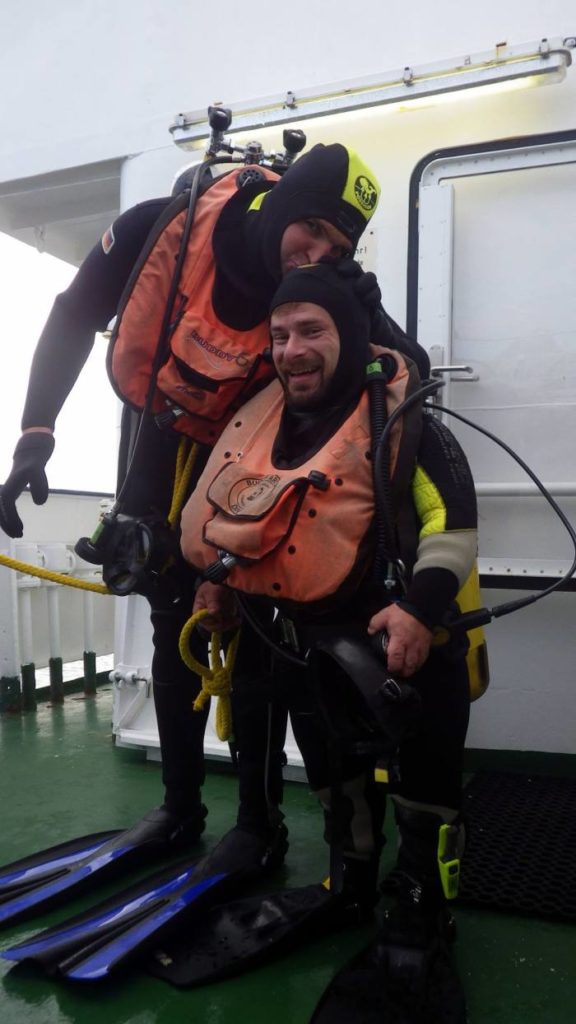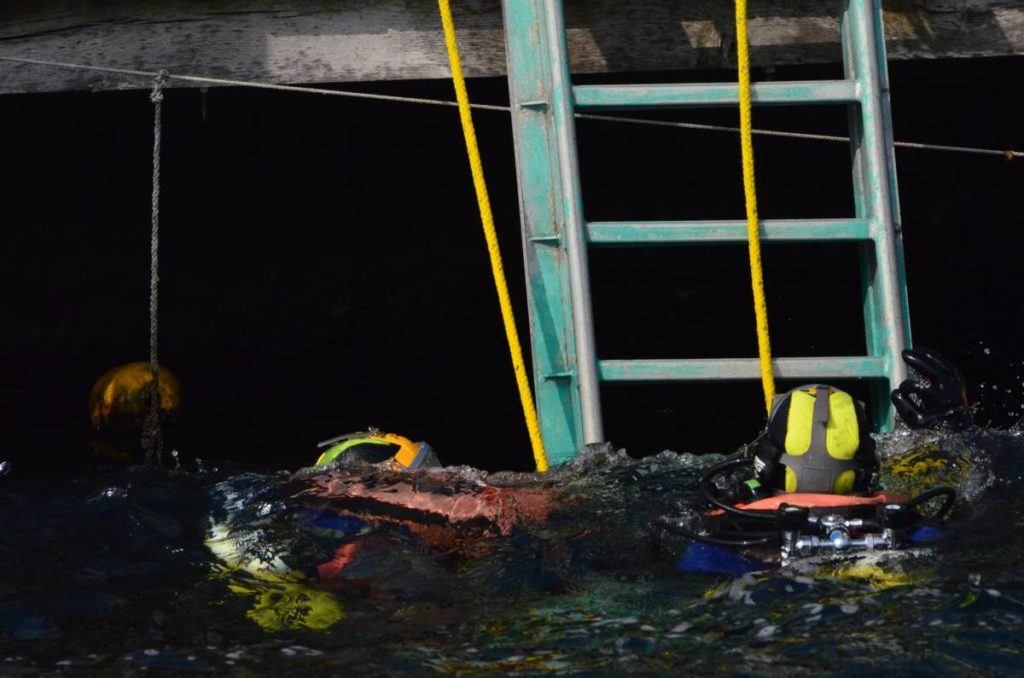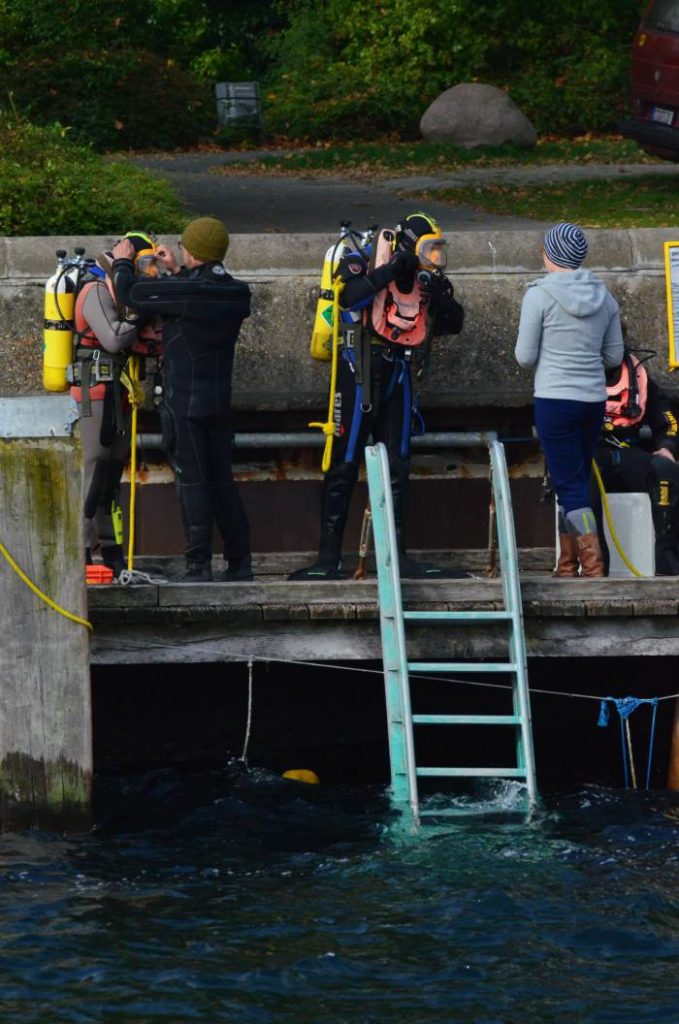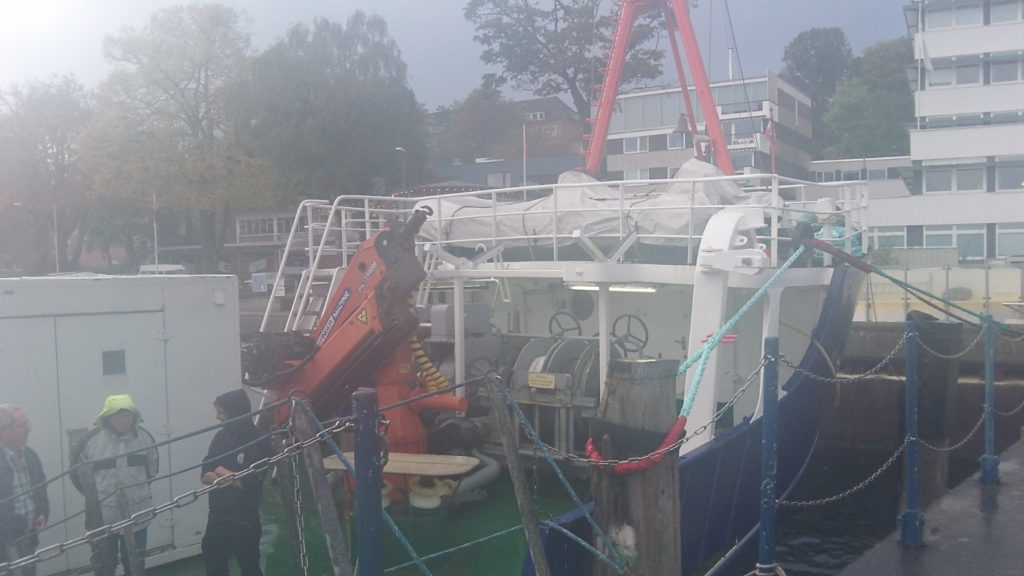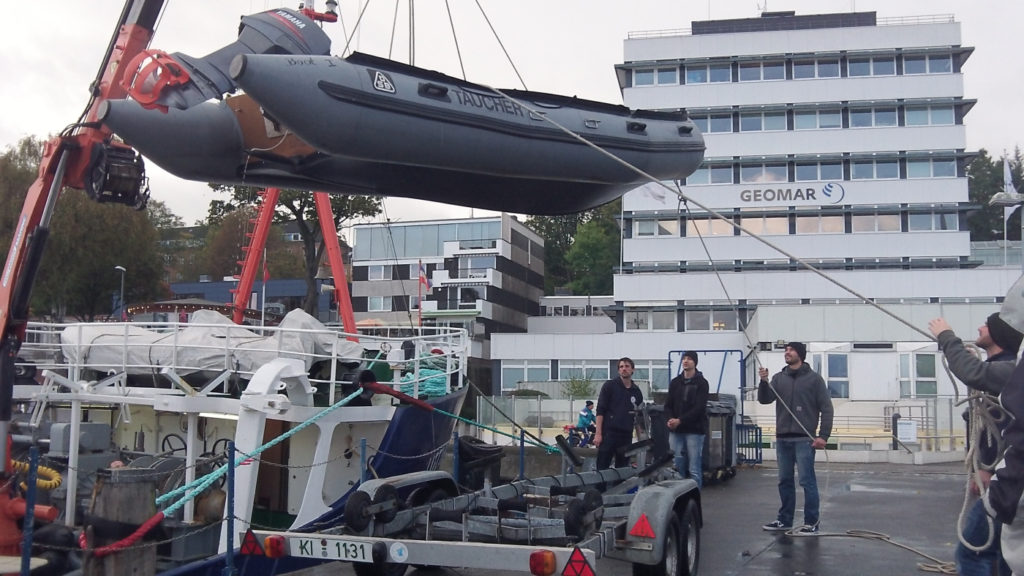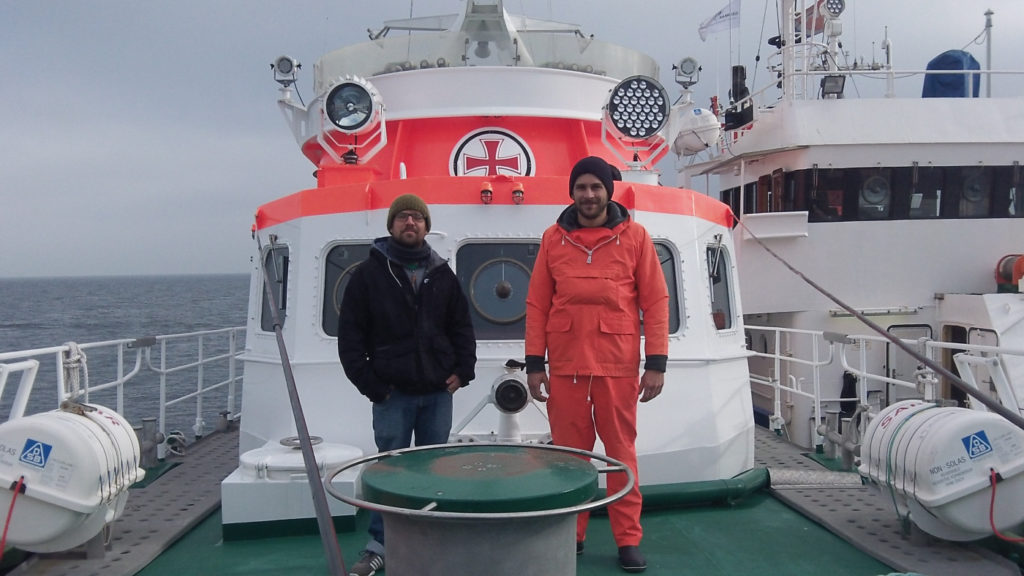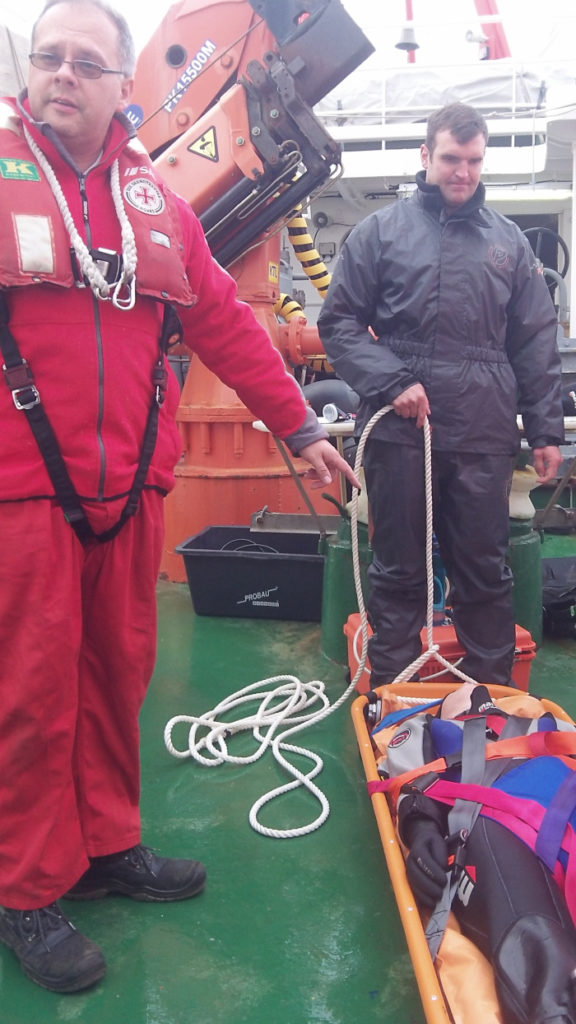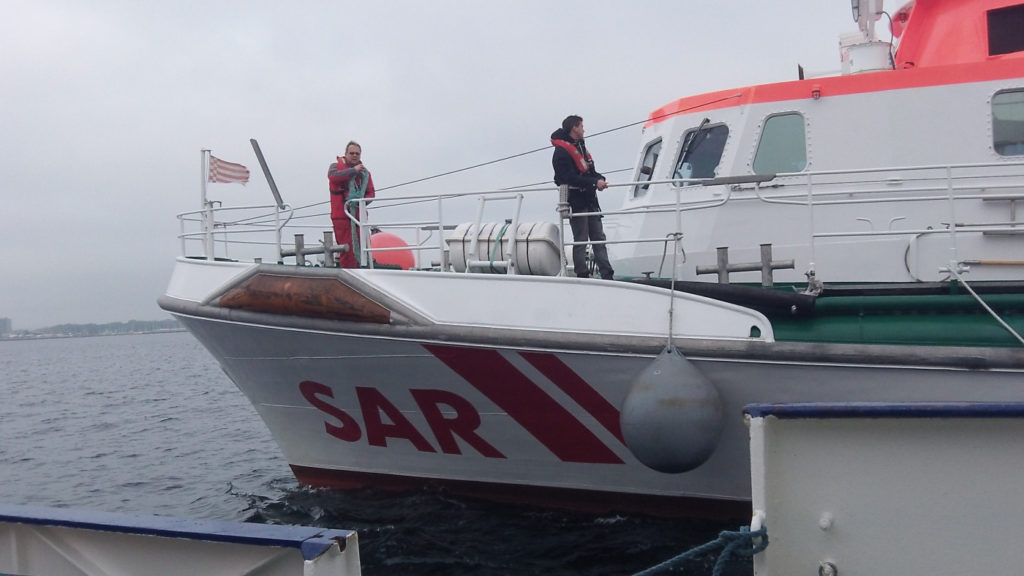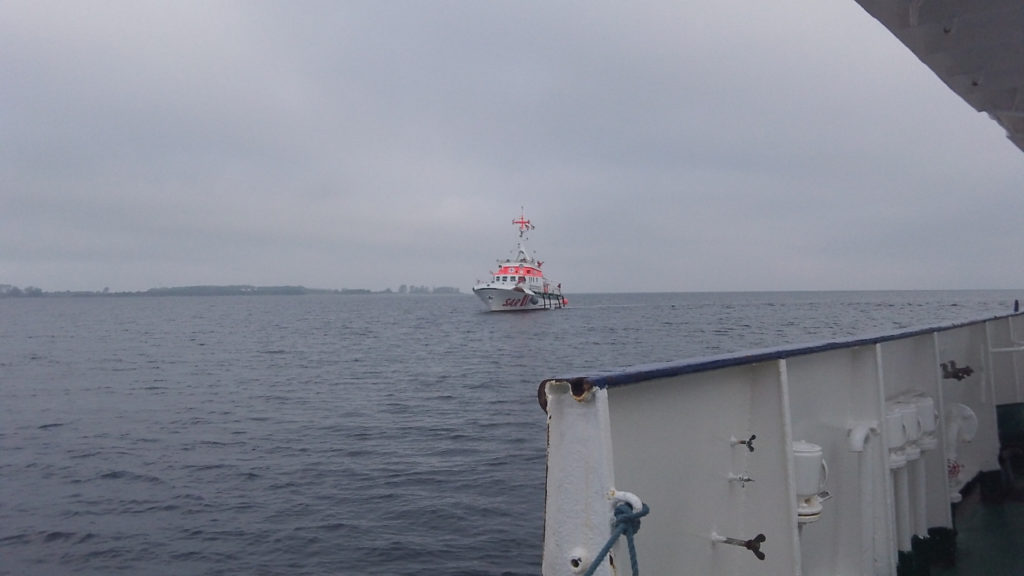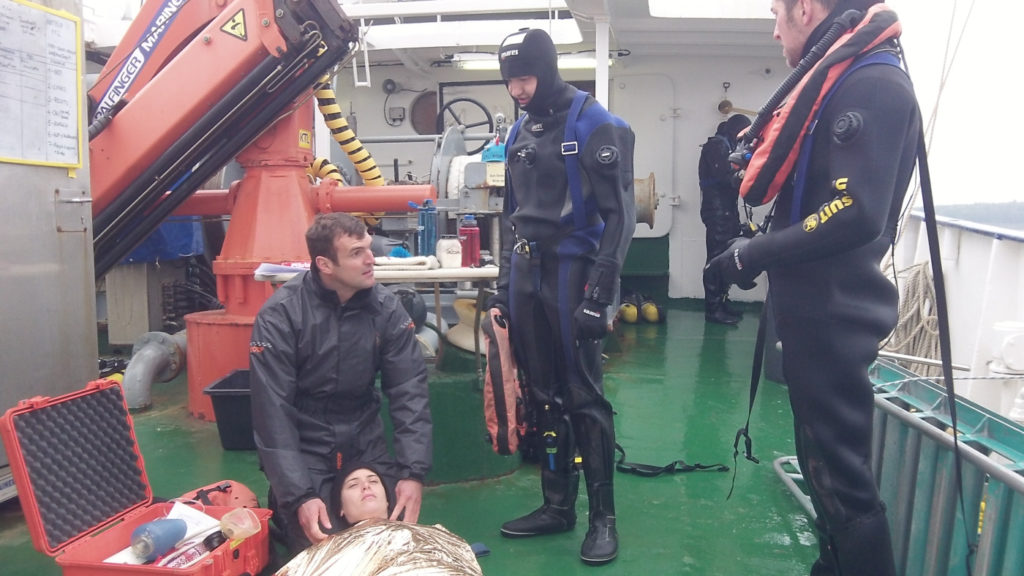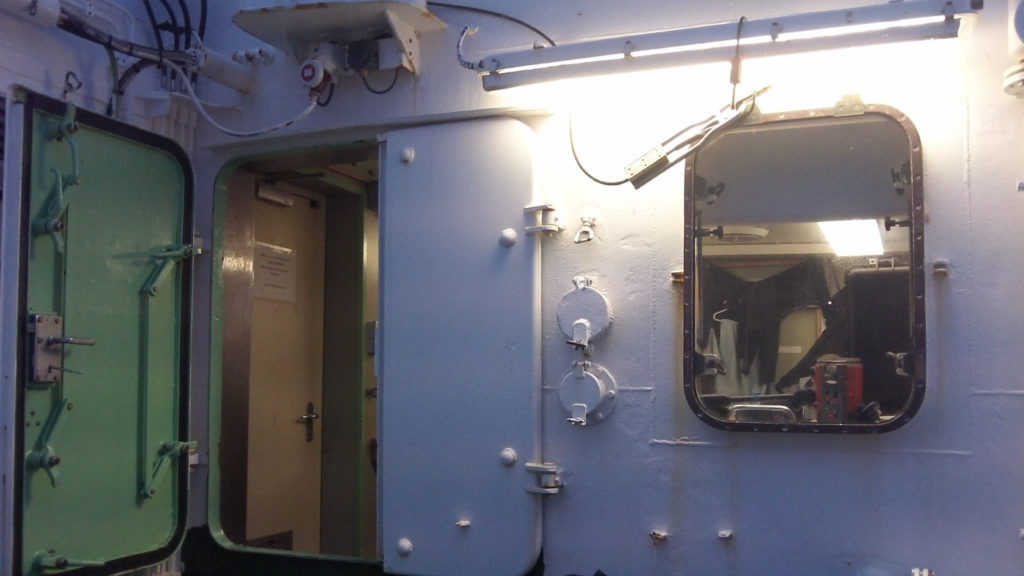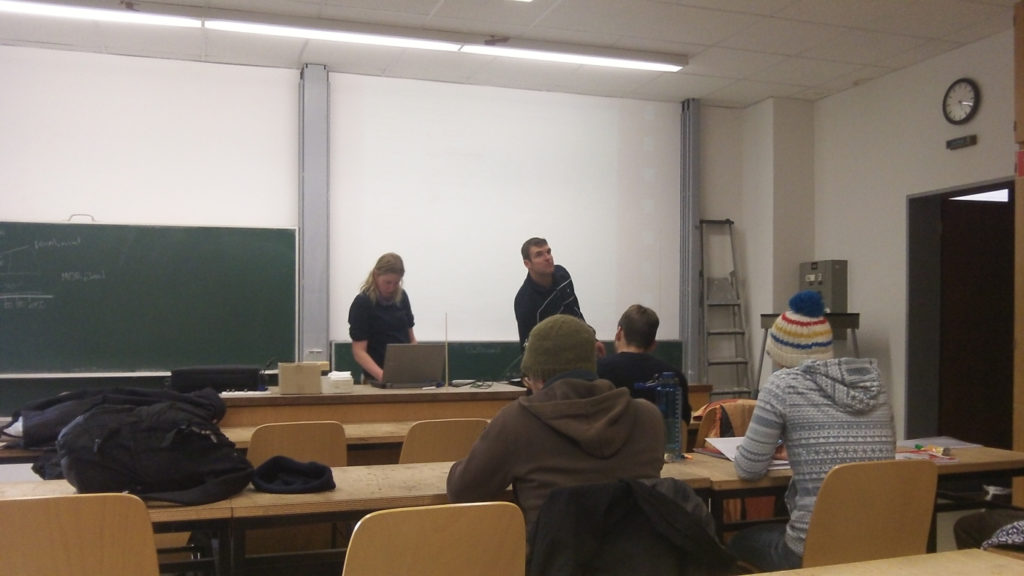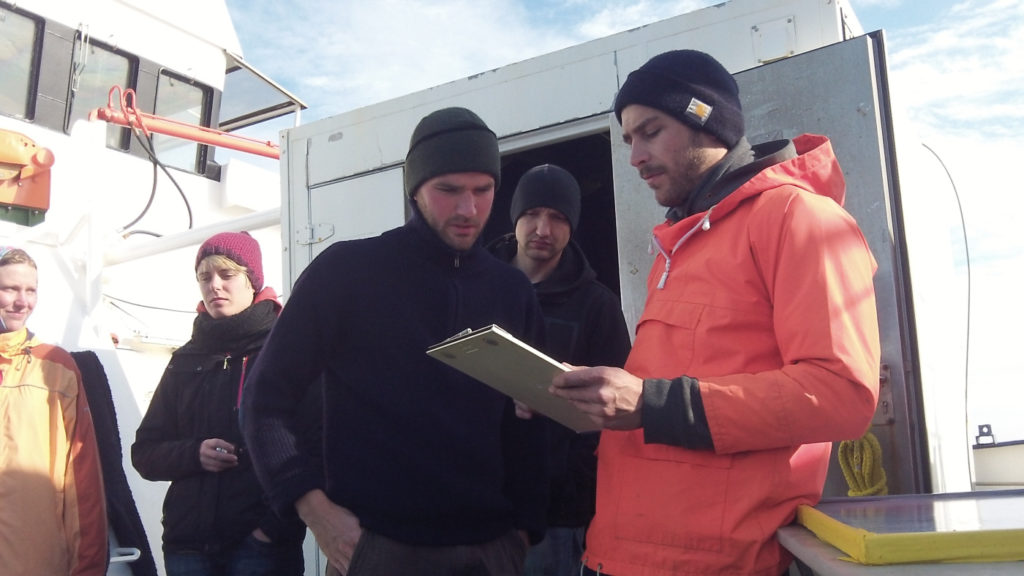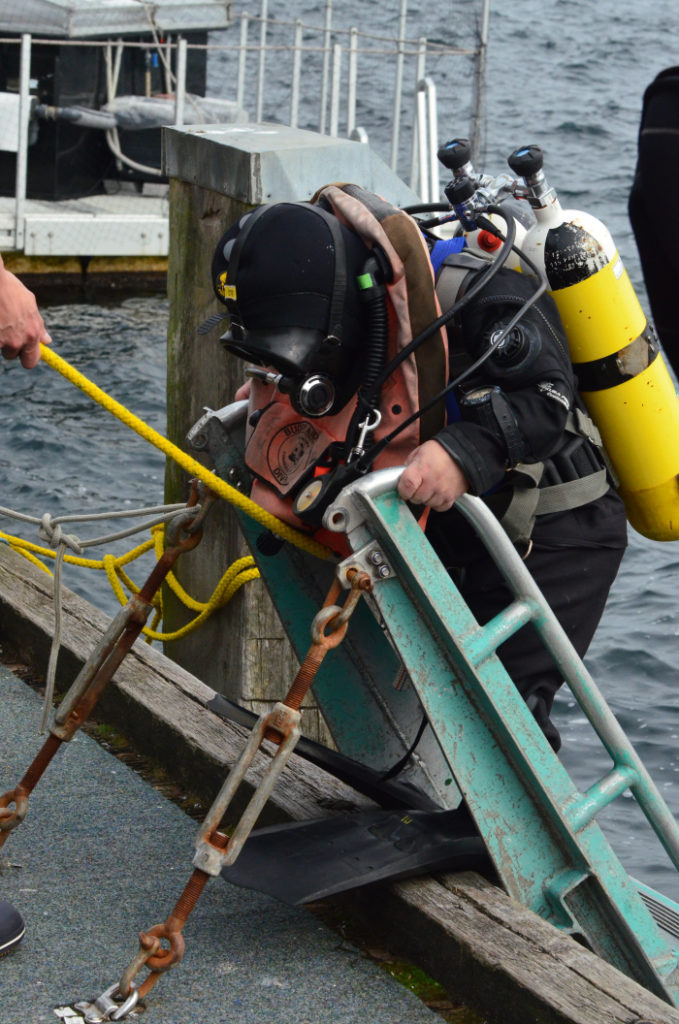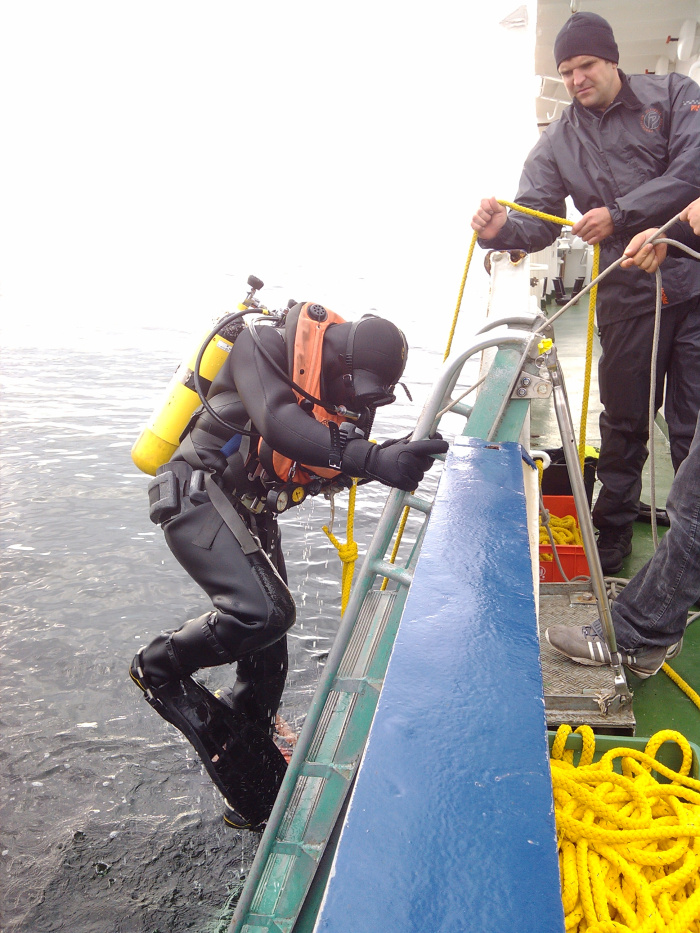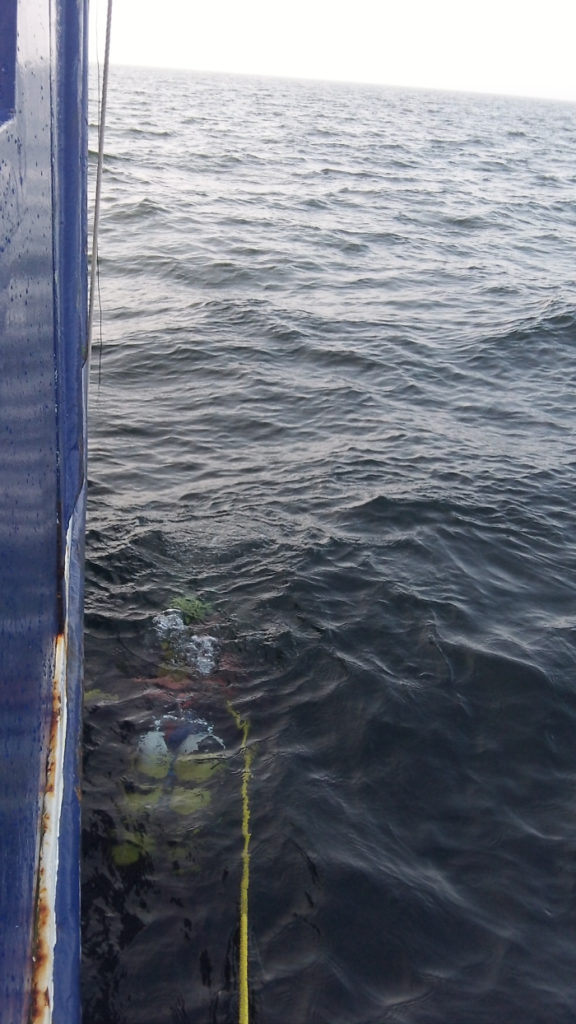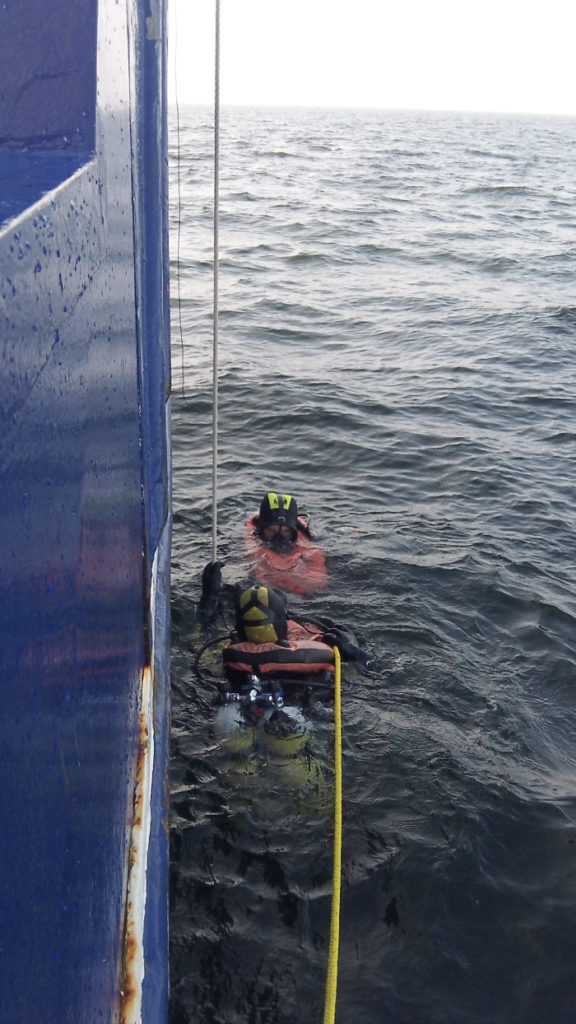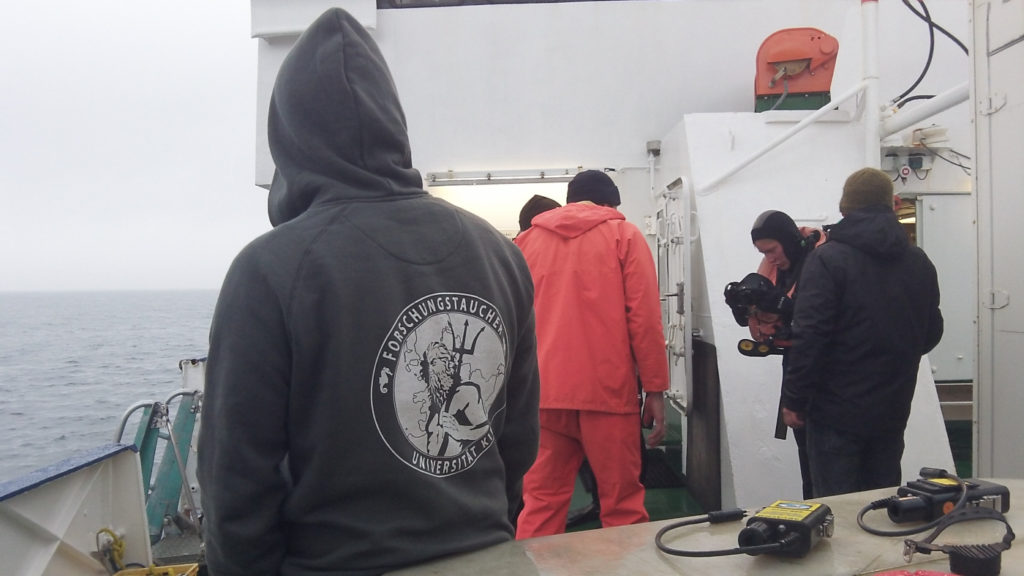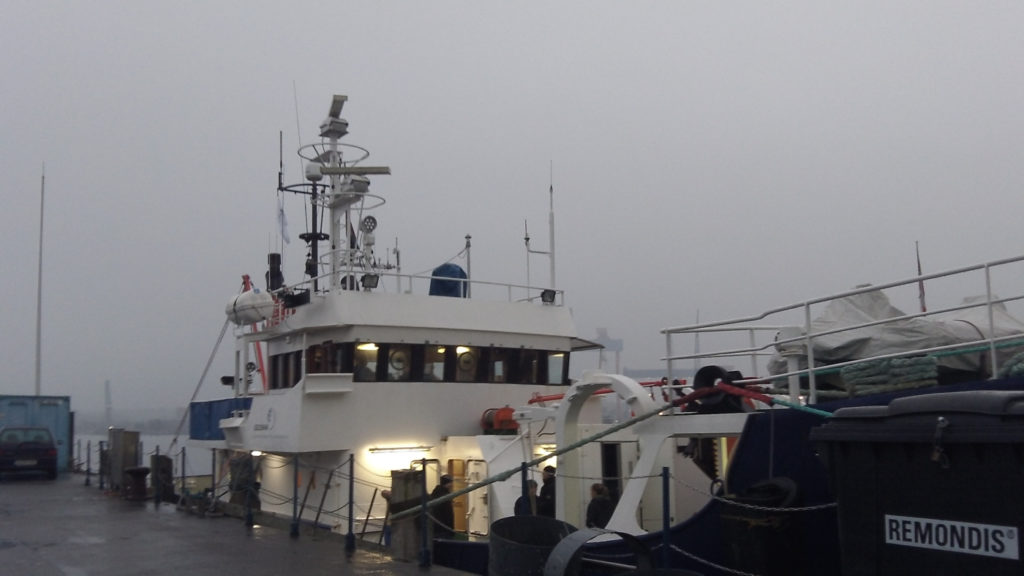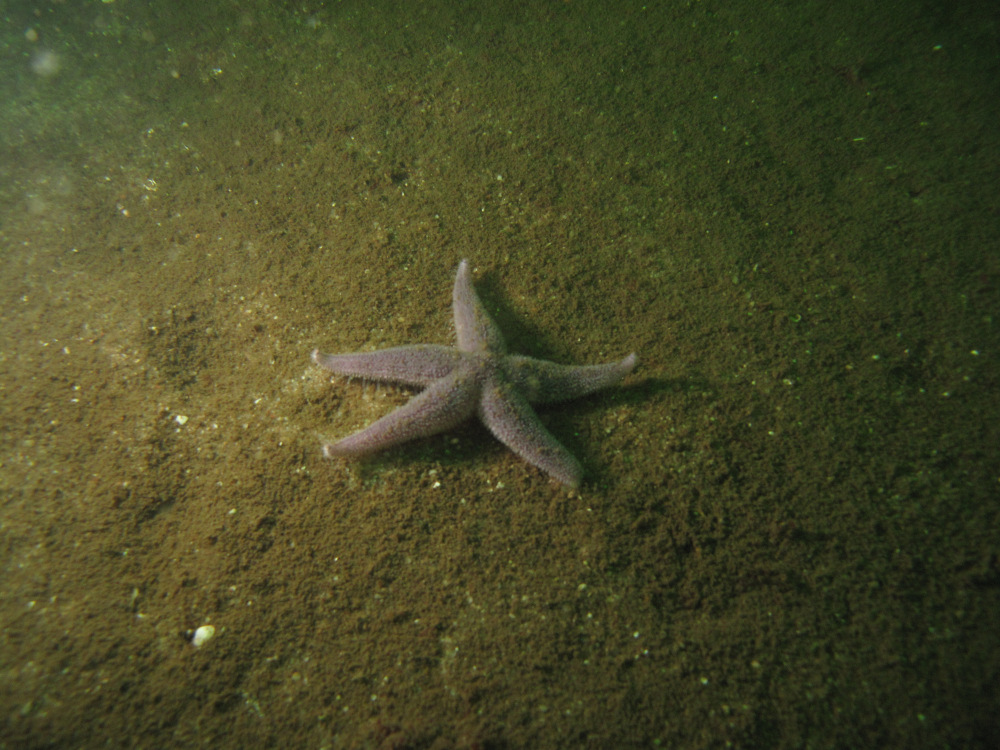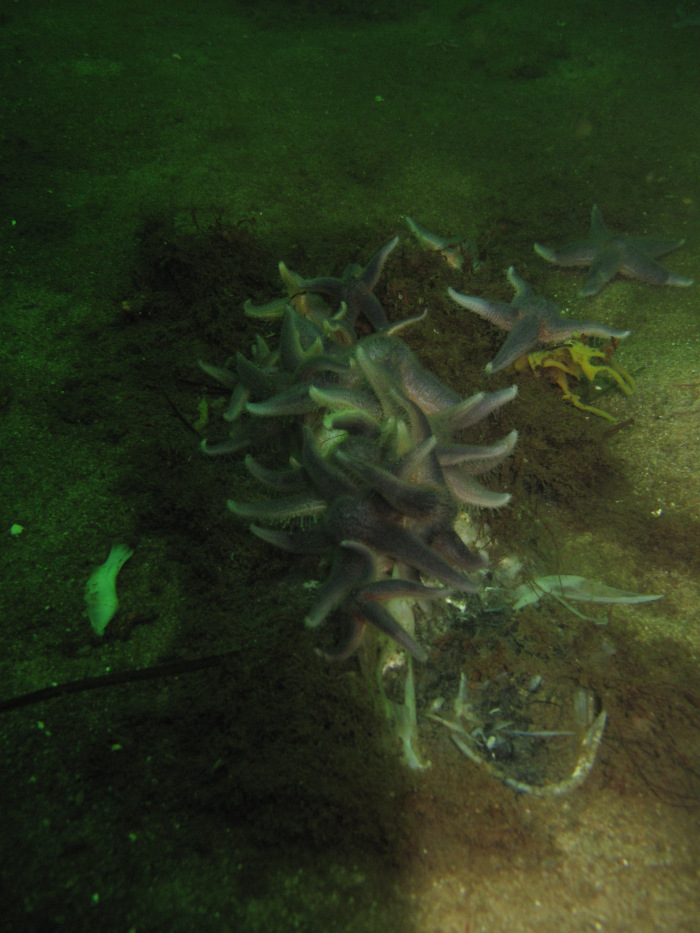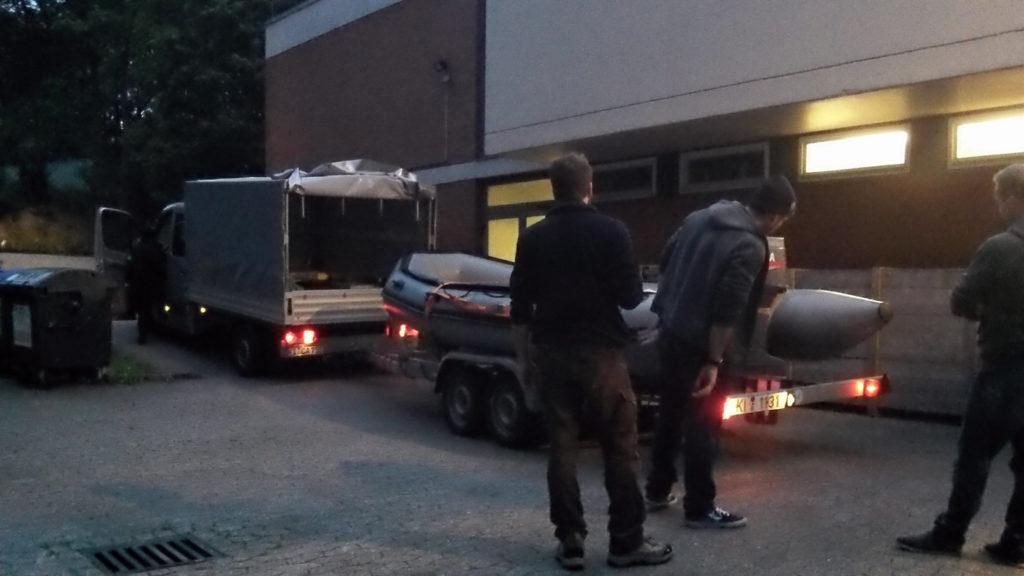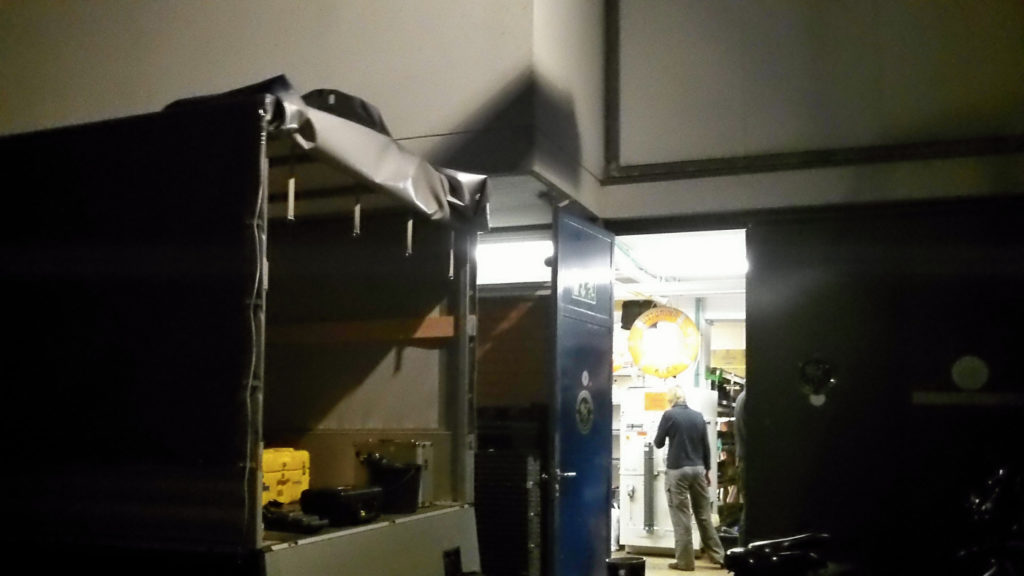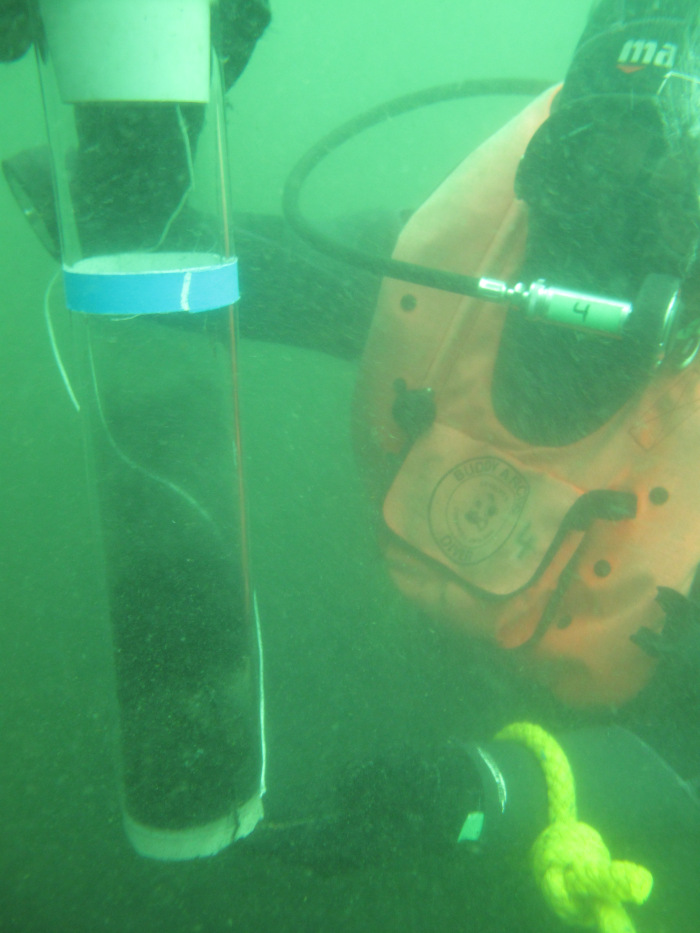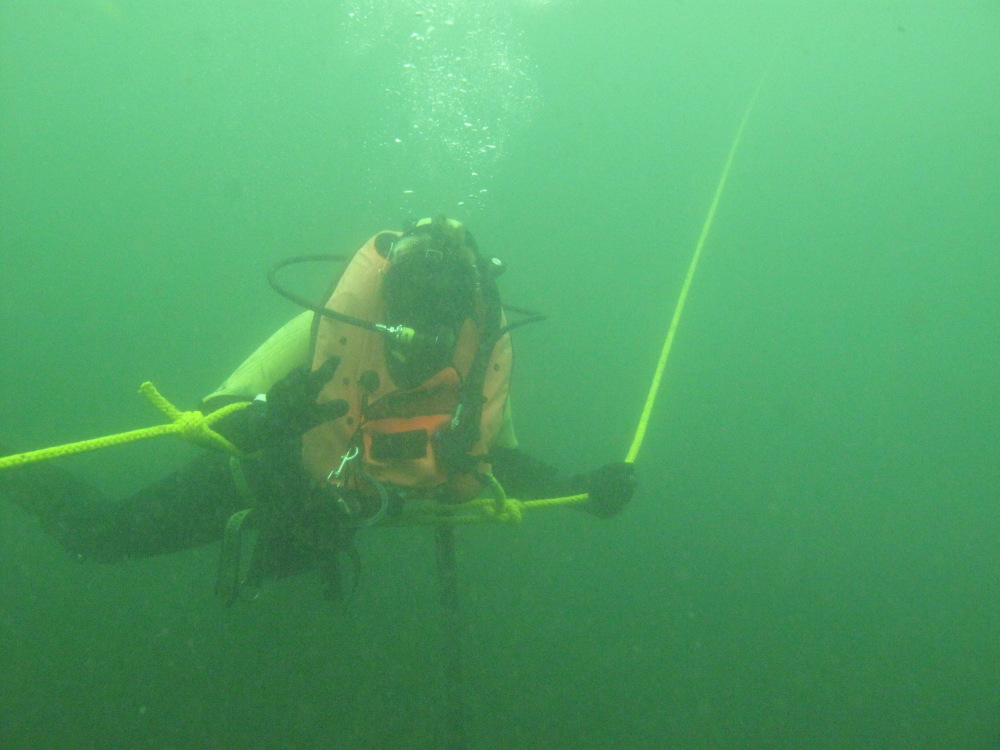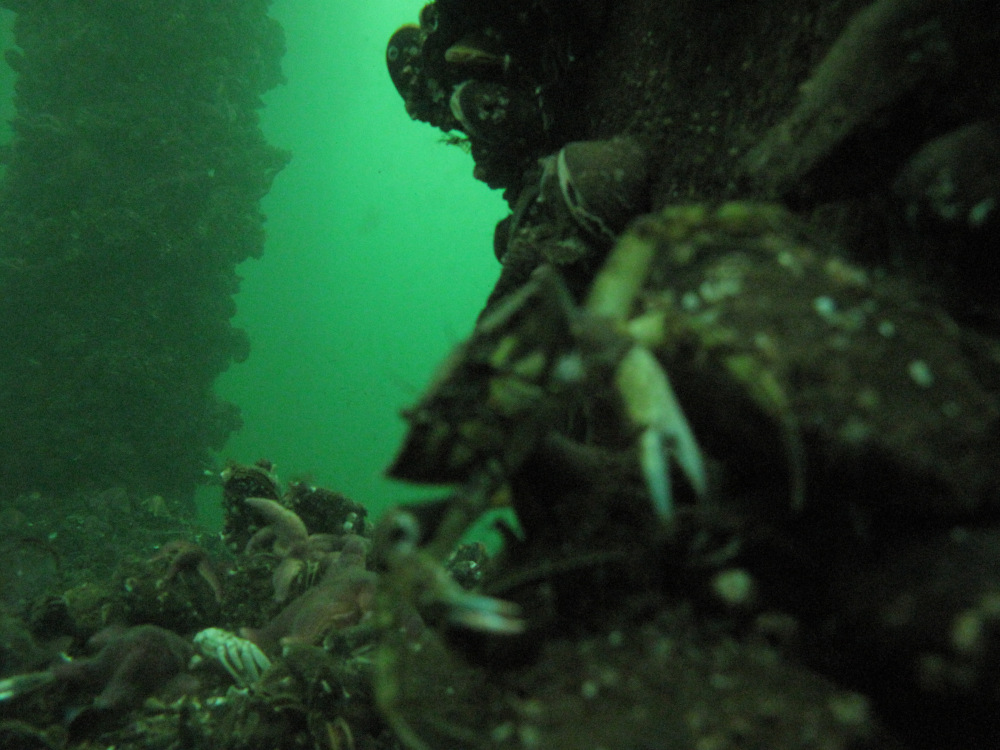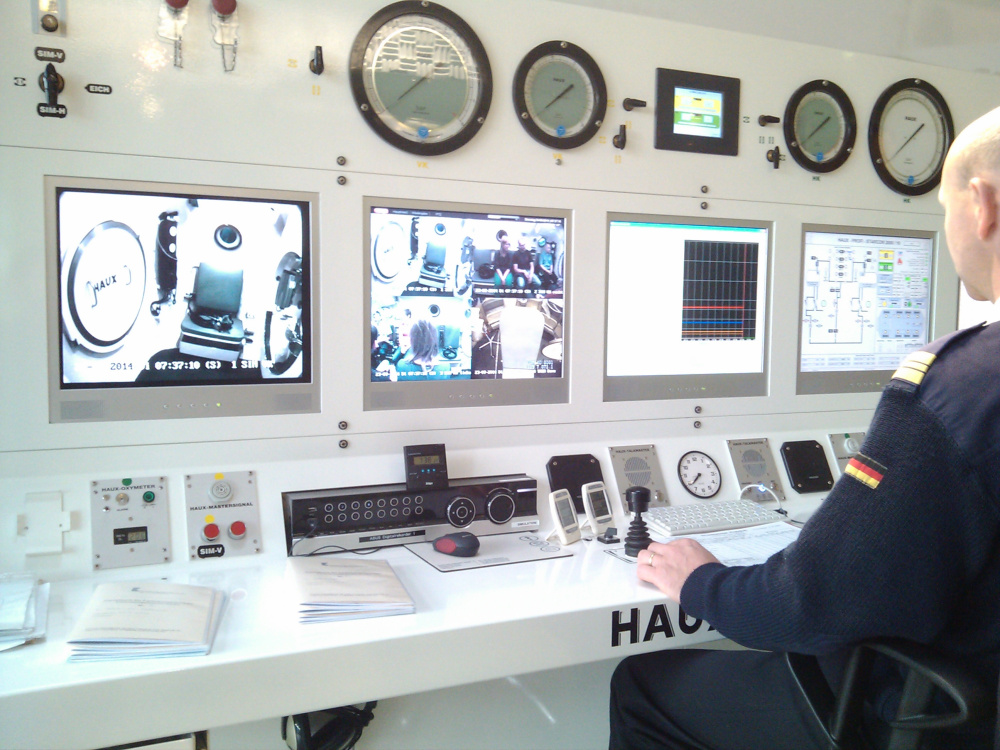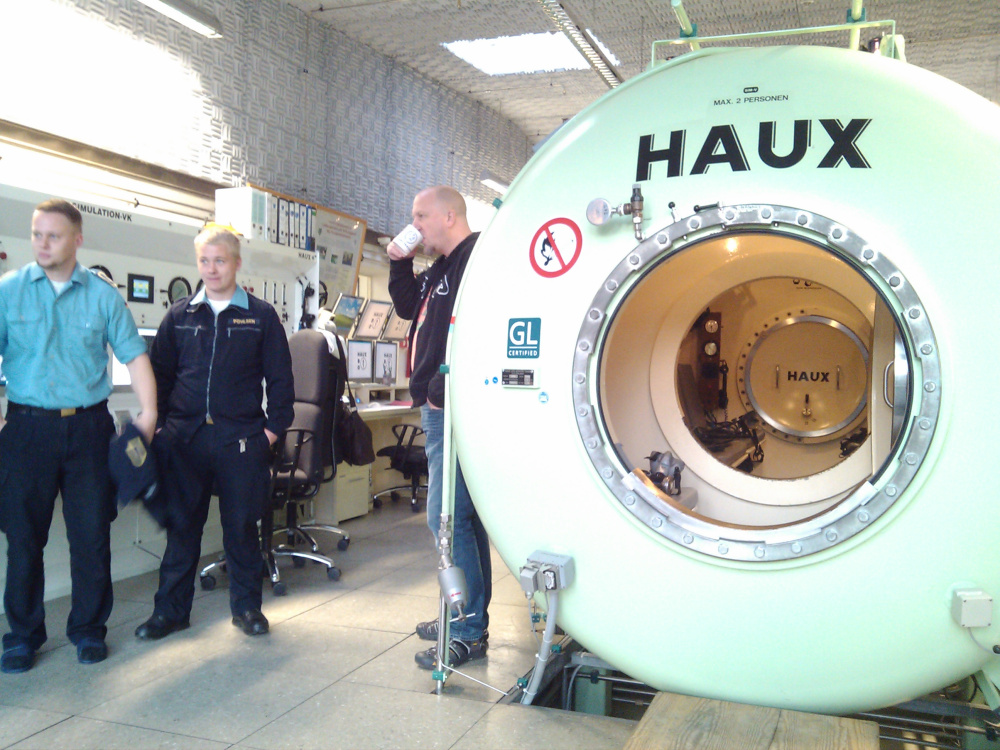In September-October 2014 I participated in an intensive training towards a Scientific Diver Certificate, with 35 training dives in the harbour basin of Geomar and on board of RV Littorina down to a depth of 30m. The intensive training is designed for individuals with previous diving experience, so we were a very mixed team composed predominantly of marine biologists, one maritime archaeologist (me), and even two German Navy mine clearance divers. Our training officer was Roland Friedrich, a retired lieutenant commander, who trained many generations of scientific divers. We benefitted greatly from his extensive experience, not only in terms of the technical and safety aspects of diving, but also his leadership in forging together very diverse people within a fraction of time, which made it – as exertive as the training was – an unforgettable experience.
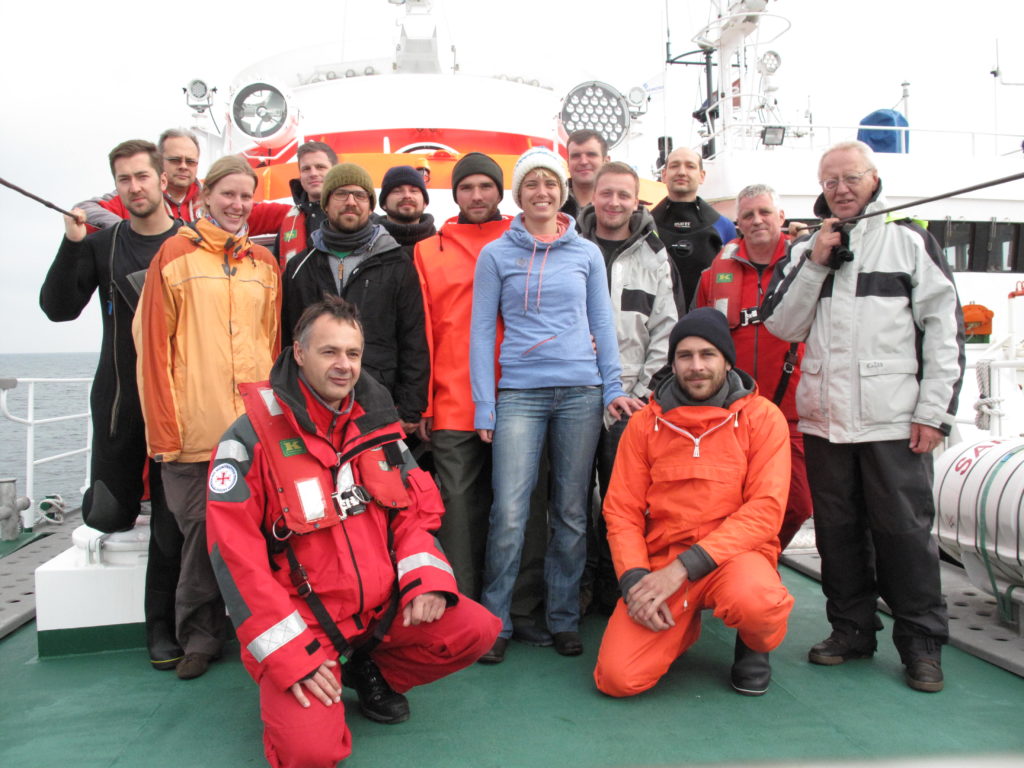
We were trained first and foremost in keeping up a high safety standard and discipline, instructed in the field of dive medicine to hone our ability to recognise – for instance – signs of decomprompression sickness or arterial gas embolism, the composition of the diving gear and compressors, and guidelines how to safely operate them. Our day was at least a 12-hour day, meeting at 7:30 at the GEOMAR harbour to board RV Littorina, two dives a day with varying tasks such as sampling, salvaging, recording or photographing. Each day was concluded with a lecture at university in the early evening. Highlights included a “dry dive” at a depth of 50m in the pressure chamber at the Medical Department of the German Navy (Schifffahrtmedizinisches Institut der Marine), a joint rescue training with the German Maritime Search and Rescue Service (Deutsche Gesellschaft zur Rettung Schiffbrüchiger) and, of course, the award ceremony. The great thing about the scientific dive centre in Kiel is that you remain part of the team forever, as it has become a “second home” for all scientific divers with a kettle of coffee always on the stove, and fieldwork opportunities for its graduates. I am very proud to be part of this group!
Here are some impressions:

